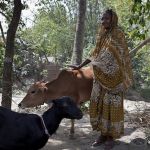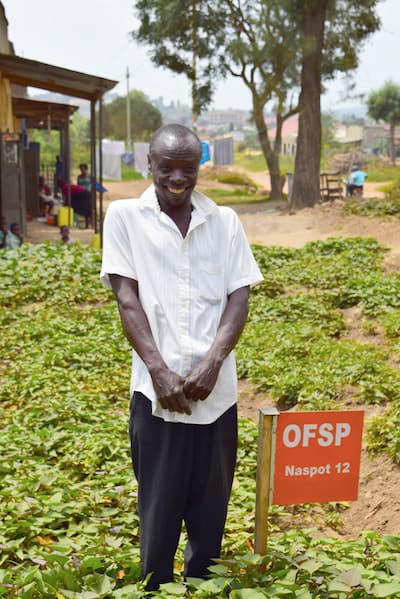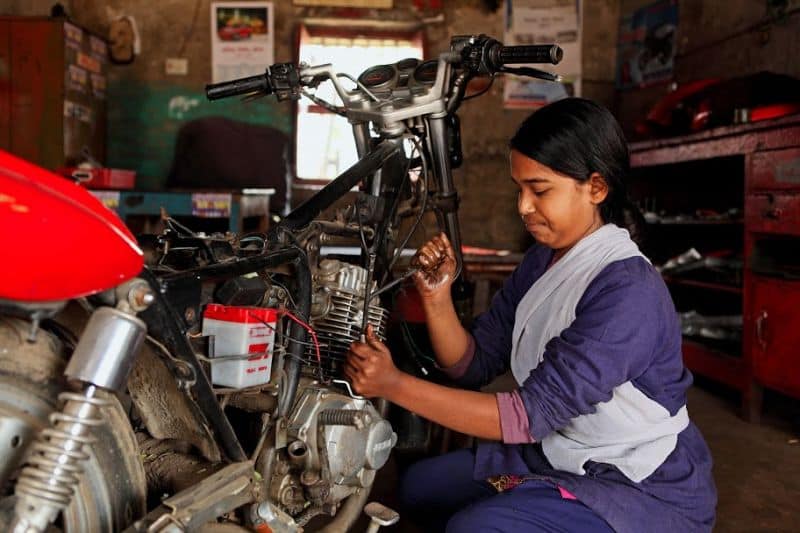Sir Fazle Hasan Abed of BRAC: Poverty’s About Deprivation, and It’s Fixable (Video)
It was 1972 and Bangladesh was “an international basket case.” The Liberation War had just ended and the country was still reeling from the deadliest tropical cyclone ever recorded, Bhola, two years before.
The desperate conditions in his native country convinced Fazle Hasan Abed to quit his executive job at Shell Oil and try to help. But he couldn’t have foreseen the impact he would have on Bangladesh – and the world – when he founded what was originally a short-term relief effort called the Bangladesh Rural Advancement Committee.
That original group of a couple dozen people grew into what is now called BRAC, the largest non-governmental development organization in the world, with a $1 billion budget and 111,000 employees offering services to 138 million people. And Bangladesh, not coincidentally, has transitioned from the world’s second poorest country to lower middle income.
BRAC’s overarching philosophy is that poverty has many causes, so many solutions are needed. The organization provides programs in microfinance, education, health care, job training, empowerment of women, sanitation, agriculture, etc., and owns 16 social enterprises that provide $700 million in revenue. The remaining $300 million in revenue is generated through donations.
Abed – now officially Sir Fazle after being knighted by Queen Elizabeth II – has been called one of the world’s 50 greatest leaders, and was hailed as “a public health hero” when the University of Michigan awarded him one of its most prestigious honors, the Thomas Francis Jr. Medal in Global Public Health, on April 6.
The next day, in a sit-down interview with NextBillion, the 80-year-old talked about his four-decades-and-counting quest to empower the poor.
“The greatest influence on me about people’s lives and poverty was my mother. She was very concerned about poverty and poor people and she tried to help them as much as she could,” he said. “(After starting BRAC) I got to know poverty firsthand in the villages of Bangladesh. I became more aware of the multidimensional aspect of poverty. It’s not just lack of income, it’s lack of opportunities, lack of health care, lack of education. It’s all kinds of deprivation that constitutes poverty. Ultimately, it’s also powerlessness to do something about poverty, how to come out of it.
“In the old days, one used to think that one takes resources to the poor people and distributes them, and they come out of poverty. But we thought you have to involve the poor people themselves in the fight against poverty.”
He said he developed that concept – considered revolutionary in the ’70s – from reading “Pedagogy of the Oppressed” by Brazilian educator Paulo Freire. “Oppressed people have got their own way of thinking about life,” Abed said, “and if you can somehow mobilize them, make them critically aware of their own condition, and get them to act on their own behalf, make them an actor in their own history, then things become much easier.”
Perhaps the best example of Abed and BRAC putting that idea into practice was an oral re-hydration therapy (ORT) program aimed at ultra-poor women in Bangladesh starting in the early 1980s. Diarrheal disease, the second leading cause of death in children under age 5, leads to dehydration, but it can treated with a simple mixture of water, sugar and salt known as ORT. Conventional wisdom held that illiterate, uneducated women were incapable of properly mixing and administering ORT, but BRAC taught millions of women from Bangladesh’s slums and villages how to do it. And today Bangladesh’s ORT rates are among the best in the world.
BRAC also pioneered a “graduation model” that empowers the ultra-poor to move from safety net programs to income-earning activities and self-sufficiency.
In the free-ranging video interview below, Abed talks more about BRAC’s future than its illustrious past.
He’s optimistic, for example, about the next generation of businesses that might help support BRAC, highlighted by a transition from a free to paid education model. He believes everyone can afford to pay $10 to $15 a month to ensure their children’s future, so BRAC is “looking into providing quality education for poor people.”
He’s wary of religious fundamentalism. The interview was conducted the day after a secular blogger was hacked to death in Bangladesh – the fourth such incident this year – in an attack attributed to a local chapter of al-Qaeda. Abed said that while “intolerant religion is becoming quite a force in our society,” it hasn’t yet had much of an impact on BRAC’s empowerment efforts, specifically of women, and he hopes such intolerance can be kept under control.
And he’s certain that it is, indeed, possible to eliminate extreme poverty worldwide, in accordance with Sustainable Development Goal No. 1. As one might expect, he’s got a plan in mind:
Kyle Poplin is the editor of NextBillion Health Care.
- Categories
- Social Enterprise



